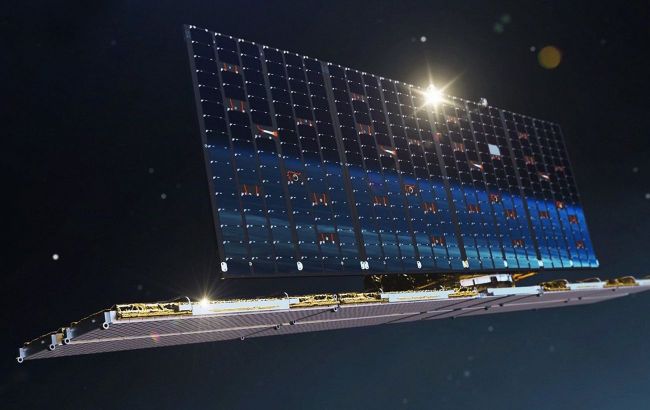Russia seen as highly unlikely to put nuclear warhead in space
 Russia is developing a jammer for satellites, not a nuclear warhead to strike them in space (photo: Iceye.com)
Russia is developing a jammer for satellites, not a nuclear warhead to strike them in space (photo: Iceye.com)
According to American intelligence, the space-based weapon that Russia may be developing is most likely a nuclear device for blinding, jamming, or burning the electronics inside satellites, rather than an explosive nuclear warhead for their destruction, according to Reuters.
The agency's source noted that Washington has received new intelligence related to Russian nuclear capabilities and attempts to develop space-based weapons. According to them, the new Russian capabilities do not pose an urgent threat to the U.S.
Analysts tracking Russian space programs have noted that the space threat is likely not a nuclear warhead, but rather a powerful device requiring nuclear energy for a range of attacks on satellites. These could include signal jammers, weapons capable of blinding imaging sensors, or electromagnetic pulses capable of disabling all satellite electronics in a specific orbital region.
"That Russia is developing a system powered by a nuclear source ... that has electronic warfare capabilities once in orbit is more likely than the theory that Russia is developing a weapon that carries a nuclear explosive warhead," said Daryl Kimball, executive director of the Arms Control Association advocacy group.
The report from the Defense Intelligence Agency for 2023 states that Russia is developing a range of weapons designed to target individual satellites, and is also likely developing more powerful systems that extend the threat to the structures of all satellites.
Primary threat
In 2021, following the United States, China, and India, Russia tested a destructive anti-satellite missile on one of its old satellites, blowing it up into thousands of fragments that remained in Earth's orbit. However, a nuclear warhead detonation in space would look quite different.
Brian Weeden, an analyst at the Secure World Foundation, stated that Russia would undermine trust in itself if it detonated a nuclear weapon in space, which could have deep consequences for both military and commercial satellites.
"The Russians have spent 40 years in the U.N. bashing America about wanting to weaponize space, and place weapons in space and pledging that they would never do it. If they do (detonate a nuclear device in space), they’d lose everything. All the countries that are supporting them on Ukraine and getting around sanctions, boom," said Weeden.
Analysts say that anti-satellite weapons can disrupt military and commercial communications, undermine the ability of armed forces to operate, and affect Global Positioning System (GPS) systems used by everyone from Uber drivers to food delivery services.
"The Russians think we're blind if we don't have access to our satellites and it's probably true. Our ability to rely on satellites is a major advantage in a potential confrontation but also a major vulnerability," said a former U.S. intelligence official to Reuters.
The threat of Russia deploying nuclear weapons in space
On Wednesday, February 14, the chairman of the House Intelligence Committee, Mike Turner, warned of a serious threat to U.S. national security, as intelligence indicates Russia plans to deploy nuclear weapons in space.
White House national security adviser Jake Sullivan confirmed this information.
Meanwhile, NATO Secretary-General Jens Stoltenberg stated that the Alliance always monitors all potential tests in all domains and exchanges data among all allies.
U.S. Secretary of State Antony Blinken said that the mentioned threat is a potential, not active, capability.
President Joe Biden has instructed his administration to engage in negotiations with Russia regarding the possible testing of nuclear weapons in space.
The Kremlin has dismissed these US warnings as malicious fabrication.

